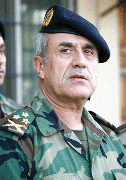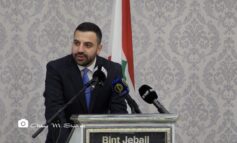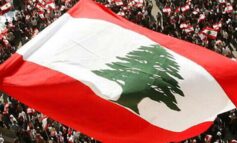BEIRUT (IPS) — As the constitutional clock ticks away the last few hours of Emile Lahoud’s presidential term, Lebanon faces its worst political deadlock since the end of the civil war. Five parliamentary sessions to elect Lahoud’s successor have already been postponed since Sep. 24, with the danger of civil strife looming over the country. As the last glimmer of hope faded in recent days, presidential elections seemed to suddenly obtain a new lease on life when Ammar Houry, MP and member of the al-Moustaqbal party headed by Saad Hariri, announced Nov. 28 the movement’s backing of Michel Suleiman, Lebanese Army commander-in-chief. Suleiman, 59, was appointed head of the Lebanese armed forces in 1998 with Syria’s approval. Well regarded on both sides of the political divide, he has been generally credited for keeping the army united in spite of the many crises faced by Lebanon since the assassination of former prime minister Rafik Hariri on Feb. 14, 2005. He appears to be the one candidate that the ruling coalition considers pro-West and the pro-Syria opposition can support. Ammar’s speech, which aired on the al-Arabia news channel, confused members of the opposition and the majority alike, jumpstarting a stalled political process. Following the announcement, speculation emerged that a thaw in U.S.-Syrian relations was the main reason behind the sudden development. Independent MP Boutros Harb, member of the majority coalition, told IPS that support for Suleiman’s candidacy arose after a closed meeting of ruling and opposition members. The majority faction currently holds 67 seats in a 128-seat parliament. “I would say both Lebanese factions found themselves cornered, and resorted to the most viable solution in order to get out of the impasse,” said Ghassan Moukhaiber, MP. He said the proposal resulted from renewed mediation from the main “deal brokers” Egypt and Saudi Arabia. It is uncertain whether this sudden change was a by-product of renewed U.S. interest in engaging Syria, or the majority sensing winds of change and resorting to a pre-emptive solution. The entry of Suleiman as the only viable candidate in the presidential race, however, resulted in a serious debate on the constitution, which bans senior public servants from seeking presidency until two years after resigning from their post. A major crisis has led to postponement of the parliamentary session until Dec. 7, which might be further adjourned. Politicians and constitutionalists have offered conflicting views on the best mechanism to allow the commander-in-chief to seek the highest office in the Lebanese state. As a “Type A” civil servant, Suleiman can only be elected following a constitutional amendment. Harb told IPS that the government needs to issue a legislative decree to modify the constitution. “The main obstacle to such a revision is the government being considered illegitimate by members of the opposition since the resignation of the Shi’a ministers,” he said. According to Harb, since the deadline for electing the president has expired on Nov. 24, parliament is considered exclusively as an electoral college, and its primary task is limited to electing a president, which does not leave the possibility for a legislative session. “I am also strongly opposed to yet another amendment of the constitution,” said Harb. On the other hand, Moukhaiber said the government could easily issue a decree without return of the Shi’a ministers who quit. “As long as the government holds two-thirds of its members, it can still draft the bill for a change in legislation,” he said. “The main question that remains now is whether we make this constitutional amendment an exceptional occurrence or make the change once and for all,” said Moukhaiber. According to the MP, the constitution should be framed within the context of the 1989 Taef accord — which revised the constitution and divided parliament equally among Christians and Muslims. “Some laws could also be introduced to fill any current constitutional loopholes and prevent recurrence of another constitutional crisis.” Harb says that the Lebanese are “simply substituting the previous direct tutelage (of the Syrian regime) for an indirect one. When international political interests predominate, small countries become a pawn in the game.”






Leave a Reply